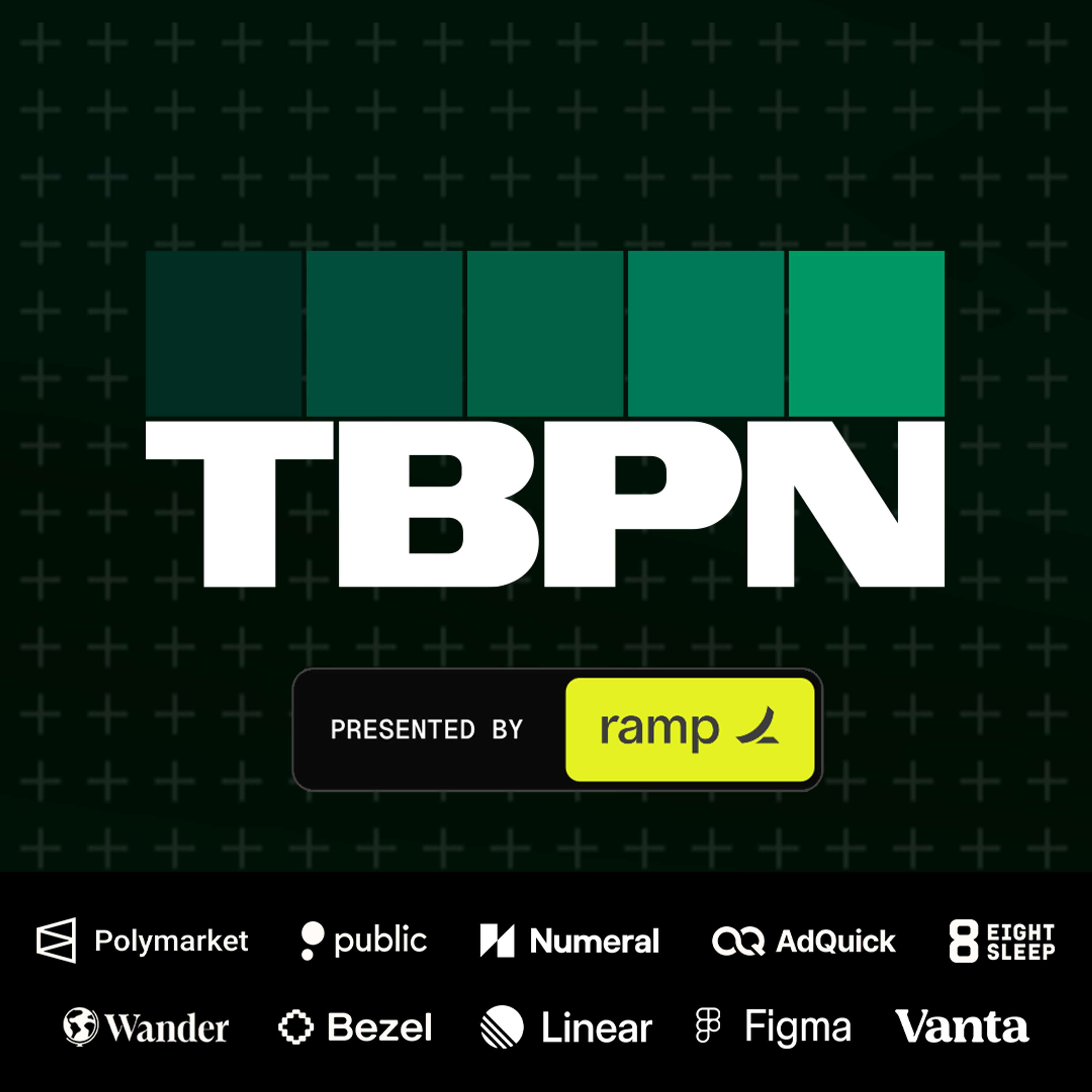
Chime Climbs, Tech Titans Join Army Reserve, Meta Buys 49% of Scale AI | Joshua Steinman, Bernt Børnich, John Doyle, Emily Sundberg, Lennart Heim
🤖 AI Summary
Overview
This episode dives into a range of topics, including geopolitical tensions in Iran, advancements in humanoid robotics, vulnerabilities in global cellular networks, the evolving landscape of AI governance, and the competitive dynamics of Substack and internet culture.
Notable Quotes
- We're years, not decades away from robots building robots, redefining what it means to be human.
- Bernt Bornich, on the transformative potential of humanoid robotics.
- The entire Ukraine war is fought on the mobile network. Cellular phones have been a part of the battlefield for as long as we've had cellular phones.
- John Doyle, on the critical role of cellular networks in modern warfare.
- DeepSeek made noise because it ticked all the boxes: open-source, cheap, reasoning model, and coming out of China.
- Lennart Heim, on the geopolitical and technical implications of China's DeepSeek AI model.
🛡️ Geopolitical Tensions and Asymmetric Warfare
- Joshua Steinman analyzes the Israeli airstrikes on Iran, emphasizing the precision of modern targeting technologies and the deployment of next-generation asymmetric capabilities like cyber weapons and suicide drones.
- He highlights the strategic implications of Iran's military leadership being targeted and the potential for escalation, given Iran's history of asymmetric attacks on U.S. interests.
- Historical context is provided, tracing Iran's shift from a pre-1979 ally of Israel to its current adversarial stance, alongside reflections on the broader geopolitical dynamics.
🤖 Humanoid Robotics and AI Learning
- Bernt Bornich discusses NEO, a humanoid robot designed for home environments, emphasizing the importance of diverse real-world data for creating intelligent machines.
- He explains why home deployment is critical for AI learning, as factories lack the variability needed for advanced intelligence.
- Challenges in scaling production are addressed, including the logistical and cost hurdles of sourcing materials like copper and aluminum in the U.S. compared to China.
📱 Cellular Network Vulnerabilities
- John Doyle highlights the security flaws in global cellular networks, noting how malicious actors exploit baked-in vulnerabilities.
- He contrasts China's strategic subsidization of Huawei equipment to infiltrate telecom infrastructure with U.S. carriers' outsourcing practices, which have created significant security gaps.
- Cape's approach involves owning all the software that runs the network, enhancing security without building physical infrastructure.
📰 Substack and Internet Culture
- Emily Sundberg shares insights into Substack's competitive landscape, emphasizing the importance of quality content and active reader engagement.
- She reflects on her experience at Apple's WWDC, noting developers' enthusiasm for updates and the evolving fashion trends among attendees.
- Sundberg also discusses broader cultural shifts, including the rise of GLP-1 drugs in wellness and the decline of celebrity-driven brands.
🌍 AI Governance and China's DeepSeek Model
- Lennart Heim analyzes the impact of China's DeepSeek AI model, noting its open-source nature, cost-effectiveness, and geopolitical implications.
- He warns of potential risks, such as sleeper agents embedded in open models and the spread of Chinese propaganda through AI applications.
- Heim also discusses export controls on AI chips, highlighting creative methods like transporting hard drives abroad to circumvent restrictions, and calls for more technologists to engage in policy-making to address these challenges.
AI-generated content may not be accurate or complete and should not be relied upon as a sole source of truth.
📋 Episode Description
- (02:47) - Joshua Steinman, founder of Galvanick, discusses the recent Israeli airstrikes on Iran's nuclear and military facilities, highlighting the precision of modern targeting technologies and the deployment of next-generation asymmetric capabilities. He notes the significant impact on Iran's military leadership and infrastructure, emphasizing the strategic implications of such operations. Steinman also reflects on the historical context of Iran-Israel relations, tracing the shift from pre-1979 alliances to the current adversarial stance, and underscores the potential for further escalation given Iran's history of targeting U.S. interests and the presence of Iranian assets capable of asymmetric attacks.
- (55:51) - Bernt Bornich, CEO of 1X Technologies, discusses his lifelong passion for robotics, leading to the development of NEO, a humanoid robot designed to safely and affordably assist with everyday tasks in home environments. He emphasizes the importance of deploying robots in diverse, real-world settings to gather the necessary data for creating truly intelligent machines, highlighting that the variability of home environments provides the rich data needed for advanced AI learning. Bornich also addresses the challenges of scaling humanoid robot production, noting that while 1X has vertically integrated its manufacturing to maintain flexibility, sourcing materials like copper and aluminum in the U.S. presents logistical and cost challenges compared to China.
- (01:12:19) - John Doyle, founder and CEO of Cape, a privacy-first mobile network, discusses the critical vulnerabilities in global cellular networks, emphasizing their complete lack of security and the ease with which malicious actors can exploit them. He highlights the strategic decisions by China to infiltrate global telecom infrastructure through subsidized Huawei equipment, contrasting it with U.S. carriers' outsourcing practices that have led to significant security gaps. Doyle explains that Cape addresses these issues by owning all the software that runs the network, allowing for enhanced security without the need to build physical infrastructure.
- (01:25:54) - Emily Sundberg is a New York-based writer and director, best known for her daily business and internet culture newsletter, "Feed Me." In the conversation, she discusses her experience at Apple's WWDC, noting the enthusiasm of developers for the announced updates, and highlights the evolving fashion trends among attendees. She also shares insights into the competitive landscape of Substack, emphasizing the importance of quality content and active reader engagement for success.
- (01:47:01) - Lennart Heim, a researcher at the Centre for the Governance of AI, focuses on the role of computational resources in AI development and governance. He discusses the impact of China's DeepSeek model on the AI landscape, highlighting its open-source nature and cost-effectiveness, which hav
